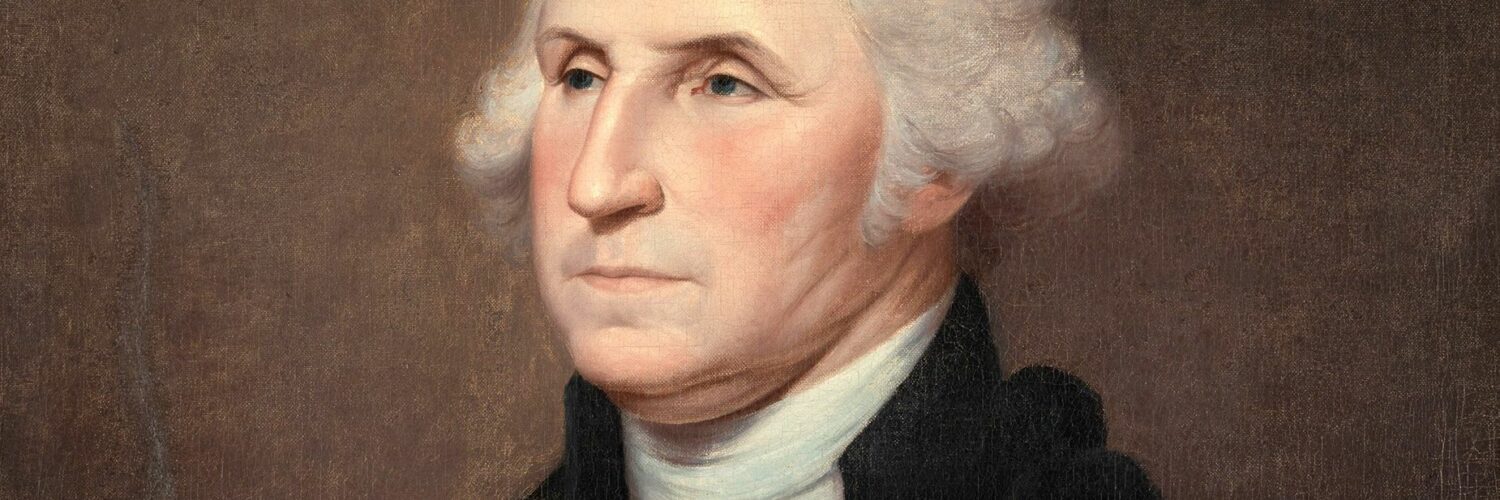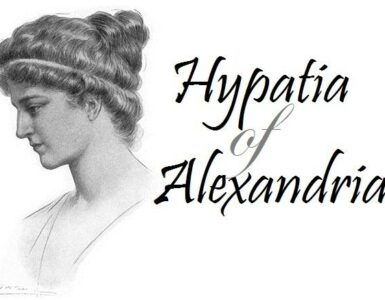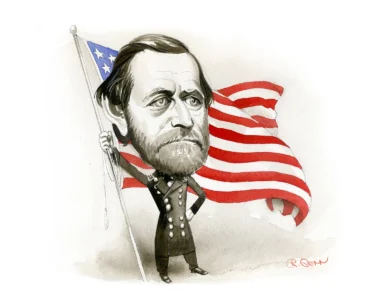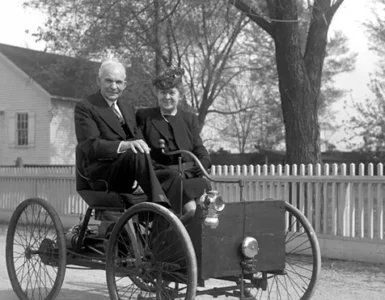George Washington is one of the most important figures in American history. As the first President of the United States and the commander-in-chief of the Continental Army during the American Revolution, Washington played a crucial role in the founding of the nation. Often referred to as the “Father of His Country,” his leadership, integrity, and dedication to public service set the standard for future presidents and shaped the early identity of the United States. This article explores the life of George Washington, his military and political career, and his lasting legacy on American history.
Early Life and Background
George Washington was born on February 22, 1732, in Westmoreland County, Virginia, into a family of modest wealth. His father, Augustine Washington, was a planter and tobacco farmer, and his mother, Mary Ball Washington, was the second wife of Augustine. Growing up on his family’s plantation, George was the eldest of six children from his father’s second marriage. His family also owned slaves, which was common among Virginia’s wealthy landowners at the time.
Washington’s formal education was limited, and he did not attend college. However, he was skilled in mathematics and became proficient in land surveying. In his early teens, after his father died, Washington assumed responsibilities on the family plantation and became a skilled horseman. His early experiences of managing land and people greatly shaped his practical knowledge and leadership abilities.
A Career in the Military and Early Challenges
George Washington began his career in the military in 1753, joining the Virginia militia as a major. During the French and Indian War (1754-1763), he was quickly promoted to lieutenant colonel and later colonel, gaining valuable experience in combat and leadership. Although he faced several challenges, including a significant defeat at the Battle of Fort Necessity, Washington learned much about military tactics, leadership, and dealing with political leaders. His courage and resilience during the war earned him respect, and he developed a reputation as a capable and determined leader.
After the war, Washington resigned from his military position and returned to Virginia. He married Martha Custis, a wealthy widow, in 1759. The marriage significantly increased his social standing and wealth, allowing him to become one of Virginia’s most prominent planters. Washington settled at Mount Vernon, a plantation he inherited from his brother, and began a life of farming, land management, and serving in the Virginia House of Burgesses.
Road to the Revolution: Patriot Leader
As tensions between the American colonies and Great Britain grew in the 1760s and 1770s, George Washington became increasingly involved in politics and the push for colonial rights. British laws like the Stamp Act and Townshend Acts, which imposed taxes on the colonies without representation, angered many Americans, including Washington. He supported the First Continental Congress in 1774, where delegates from the colonies met to discuss their grievances against British rule.
When armed conflict broke out between colonial militiamen and British troops at Lexington and Concord in 1775, the American Revolution began. That same year, Washington was appointed as the commander-in-chief of the Continental Army by the Second Continental Congress due to his military experience, leadership skills, and widespread respect among the colonies.
The American Revolution and Washington’s Leadership
Washington’s leadership during the American Revolution was marked by both challenges and triumphs. Leading a newly formed and often poorly equipped army, Washington faced difficulties with logistics, training, and morale. However, he proved to be a tenacious and strategic leader who could inspire his troops even in the face of overwhelming odds.
One of Washington’s most significant early victories was the Battle of Trenton in 1776. In a surprise attack, Washington and his troops crossed the icy Delaware River on Christmas night to defeat the Hessian forces (German mercenaries fighting for the British). This victory boosted American morale and revitalized the revolutionary cause.
Throughout the war, Washington was known for his ability to adapt his strategies to changing circumstances. He understood that the Continental Army did not have to win every battle outright but rather needed to continue fighting until the British forces were exhausted and their support for the war waned. This approach eventually paid off when, in 1781, the combined American and French forces successfully defeated the British at the Battle of Yorktown, effectively ending the war.
The Treaty of Paris in 1783 officially recognized the independence of the United States, and Washington became a national hero, admired for his role in securing American freedom.
Washington as the First President
After the war, George Washington retired from public life and returned to Mount Vernon. However, he soon realized that the newly independent country was facing significant challenges under the Articles of Confederation, the weak governing document that preceded the U.S. Constitution. In 1787, he was asked to preside over the Constitutional Convention in Philadelphia, where delegates created a stronger framework for the federal government.
The resulting U.S. Constitution was ratified in 1788, and in 1789, Washington was unanimously elected as the first President of the United States. He served two terms, from 1789 to 1797, and his presidency set many precedents for the new nation. Washington established the role of the president as a non-partisan leader who served the interests of the entire country. He also created the first Cabinet, appointing Alexander Hamilton as Secretary of the Treasury, Thomas Jefferson as Secretary of State, and Henry Knox as Secretary of War, thereby setting a standard for future presidents to rely on advisors.
During his presidency, Washington faced several important challenges. He helped stabilize the nation’s finances by supporting Hamilton’s financial plans to establish a national bank and federalize state debts. He also worked to maintain peace and avoid entanglement in European conflicts through policies like the Proclamation of Neutrality.
Washington retired after serving two terms, setting a precedent that lasted until the mid-20th century and became law in 1951 with the 22nd Amendment, which limited presidents to two terms.
Washington’s Farewell Address
One of the most significant contributions Washington made was his Farewell Address, a letter published in 1796 announcing his decision not to seek a third term. In this address, Washington warned against political parties, sectionalism, and foreign alliances. He believed that political unity was crucial for the nation’s success and feared that factionalism and foreign entanglements could threaten American democracy. His address remains one of the most important documents in American political history.
Life After the Presidency and Death
After leaving office in 1797, Washington returned to Mount Vernon, hoping to live a peaceful life as a farmer. However, his retirement was short-lived. In 1799, he fell ill with a severe throat infection and passed away on December 14, 1799, at the age of 67. His death was mourned across the nation, and his legacy as the country’s founding leader became cemented in American history.
Washington’s influence extended beyond his lifetime. He set a standard for leadership and integrity that has influenced every American president who followed. His Mount Vernon estate became a national treasure, and in 1885, the Washington Monument was completed in his honor in Washington, D.C.
Washington’s Legacy and Lasting Impact
George Washington’s legacy is immense and multifaceted. As the first President, he defined the role and powers of the executive branch, and his leadership helped guide the young United States through its early and formative years. His actions and decisions during the Revolutionary War and his presidency laid the foundation for American democracy.
Washington is celebrated for his sense of duty, modesty, and humility. Despite his power and influence, he willingly gave up his military command and later the presidency, demonstrating his commitment to the principles of democratic government and avoiding the trappings of monarchy. His leadership through times of uncertainty and change set an example for what a leader should be—courageous, selfless, and committed to the welfare of the people.
Conclusion
George Washington’s life was one of dedication to public service, leadership, and the founding principles of the United States. From his early days as a soldier and surveyor to his role as commander-in-chief during the American Revolution and ultimately as the first President, Washington’s actions have shaped the country’s identity and government.
His influence on the nation’s founding, his example of servant leadership, and his belief in the unity of the American people continue to resonate in the values and ideals of the United States. George Washington’s legacy is a reminder of the power of character, leadership, and commitment to a just cause.





Add comment